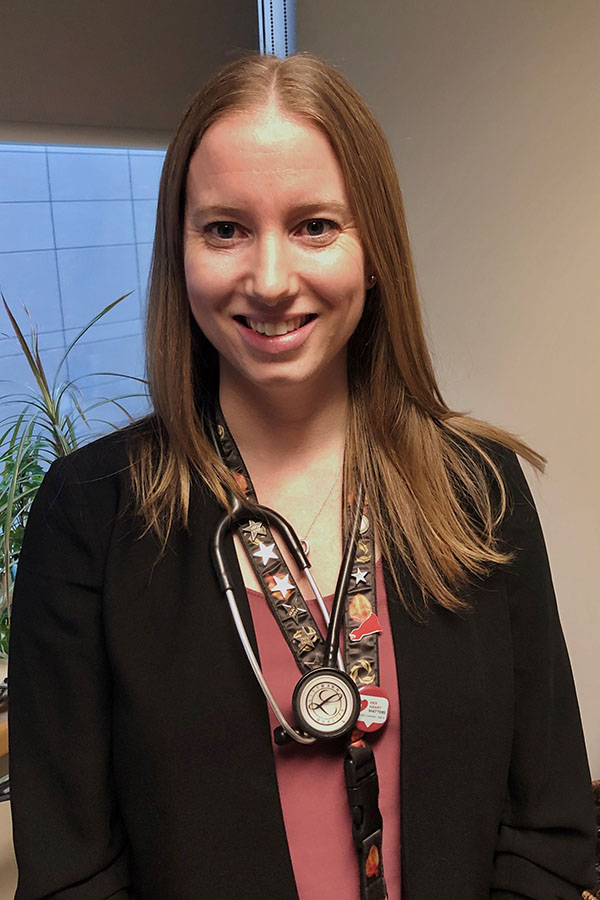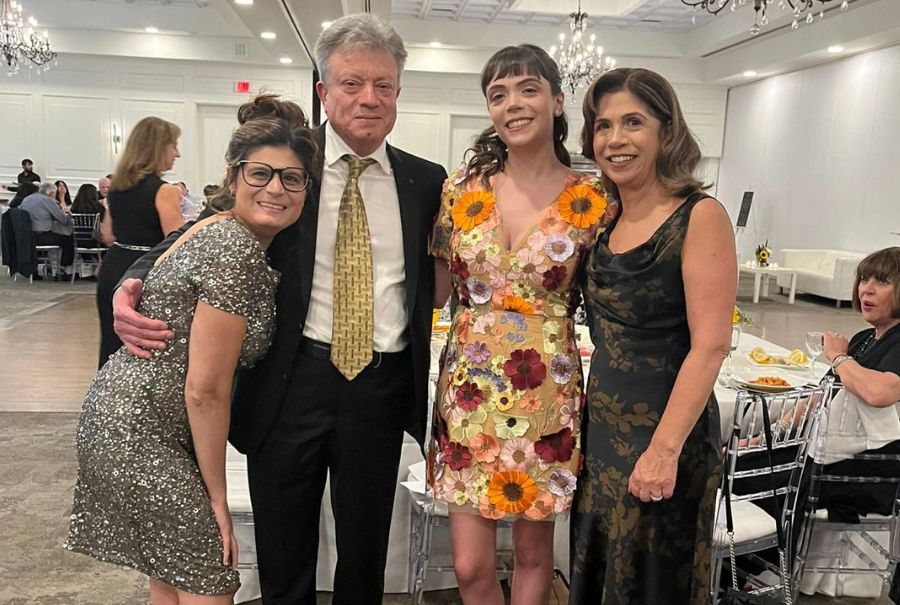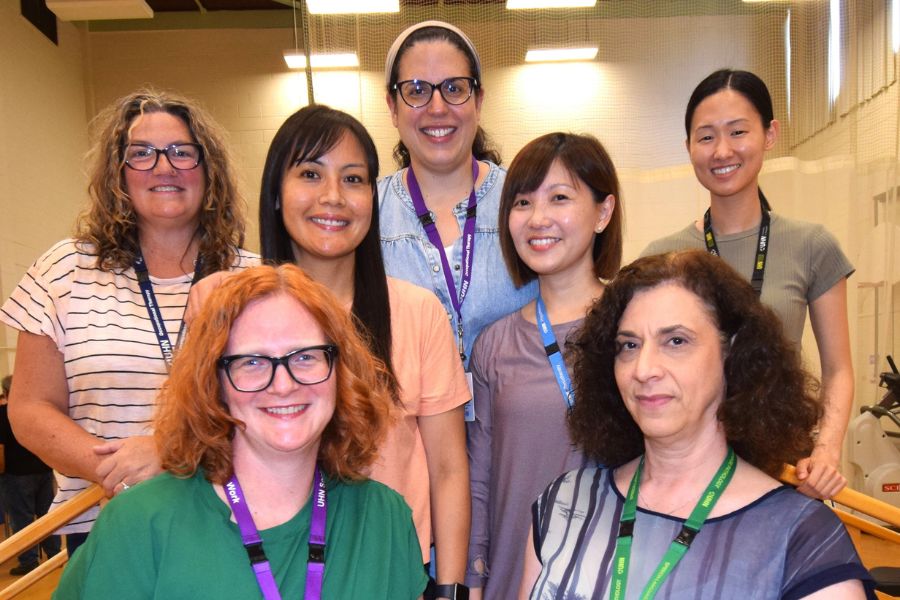Jennifer Quan, Cardiac Rehab Supervisor and kinesiologist at Toronto Rehab, says the pandemic has led to a change in the model of care from in-person group exercise sessions of 20 to 25 patients to much smaller virtual groups of six or seven. (Photo: UHN)
Do the pandemic pivot. No, that’s not the latest in TikTok videos, though it could be. It’s what many at University Health Network have done over the past 20 months.
Kinesiologists, health professionals with a thorough understanding of biomechanics, anatomy, physiology, human behaviour, ergonomics, and a sense of conveying information efficiently and effectively for maximum patient benefit, have certainly done their share.
Take Jennifer Quan, Cardiac Rehab Supervisor and kinesiologist at Toronto Rehab (TR), who works in the Cardiovascular Prevention and Rehabilitation Program. Jennifer used to see patients traveling to TR program sites to participate in group exercise classes.
Cue the pandemic pivot. The traffic at Toronto Rehab’s Rumsey Centre dramatically lessened. For Jennifer, the benefits of an in-person, group exercise program were no longer there, and a new task presented itself in motivating patients to join in, independently, and from home.
“We had to change our model of care from providing group education and exercise sessions for 20 to 25 patients to much smaller groups of six to seven patients where most of the education is delivered virtually,” Jennifer says.
COVID-19 and public health measures made it impossible to do things the way they were before, but kinesiologists have a habit of focusing on the positive.
“As a profession, we have been able to provide services to a wider range of patients because travel time to our program sites is not as much a factor as we continue to deliver more and more virtual care,” Jennifer says.
Nov. 22 to 28 is National Kinesiology Week. This year, the Canadian Kinesiology Alliance’s theme is “Moving Forward with COVID-19.”
At UHN, the focus is on recognizing the efforts of 80-plus kinesiologists across multiple programs, including the Cardiac Rehab Program, Outpatient Musculoskeletal Program, Toronto Rehab’s research arm, KITE, Cancer Rehab and Survivorship Program, as well as Altum Health.
“We are far-reaching,” says Holly Wykes, Discipline Coordinator for Kinesiology at UHN. “Our scope of practice is unique – we work in so many environments with the over-arching goal of improving function.
“We are interdisciplinary, and we are not an island.”
Kinesiologists (also known as kins) can independently assess and treat patients. They also unite a huge range of disciplines and skills, representing versatility in the convergence of care and expertise.
Nicole Bennett, a kinesiologist at Altum’s clinic in Cambridge, Ont., 100 kilometres southwest of Toronto, says she continually sees innovation brought about by the pandemic.
“There isn’t a day that goes by that I don’t learn something new,” she says, “a new way to assess, a new treatment, a life experience to pass along to another colleague or client and how to be a better clinician/consultant.
“Whether you are working in research, assessment, rehabilitation or wellness; each field can allow that kin to explore and cultivate their interests into their work.”

Kinesiology collaboration elevates many programs at UHN, including in the Outpatient Musculoskeletal Program, where they work as part of a team to provide individualized exercise programs and oversee patients’ rehabilitation in an outpatient setting.
Inspiration is certainly happening for kinesiologists at KITE, a powerhouse research arm of UHN, where the use of novel therapies drive kins to explore how mobility-impaired patients can gain independence, thus reducing the burden on the health care system.
Inspiration resides everywhere at UHN, where kinesiologists see wins both big and small.
The small wins inspire Skyler Mann, a kinesiologist at Altum Health’s Cambridge clinic, when the impacts of collaborative, innovative care show up in the day-to-day life of a patient.
“A client with a low back injury arrived at one of our treatment sessions was head over heels with excitement that she was now able to wash her feet in the shower for the first time in months!,” Skyler says.


